Judge grants right to challenge 'collusive behaviour' findings
- Published
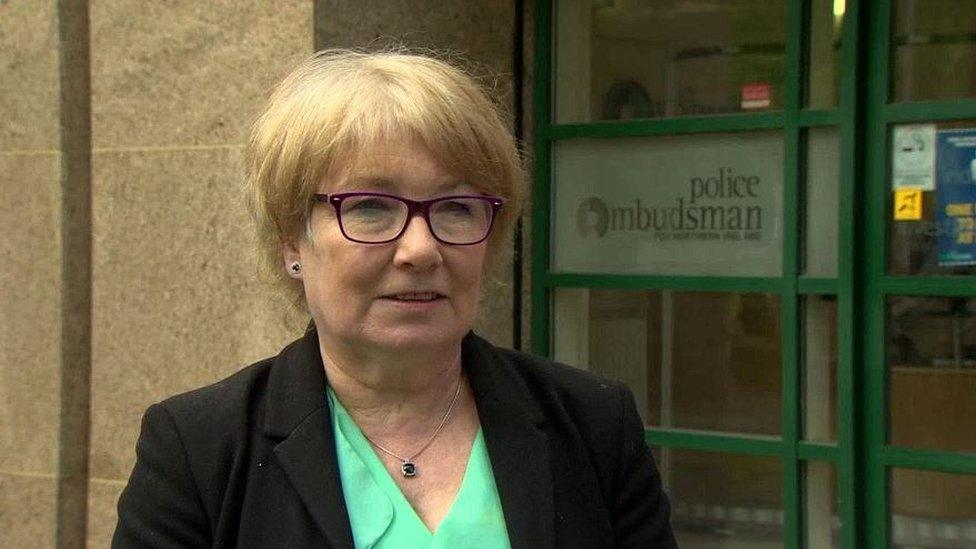
Police Ombudsman Marie Anderson is being challenged over her findings of 'collusive behaviour' by former RUC officers
Former RUC officers have secured High Court permission to challenge findings of "collusive behaviour" in recent reports by the Police Ombudsman.
The judge said it is arguable that the reports "over-stepped the mark".
The Northern Ireland Retired Police Officers Association has now been granted a judicial review of the ombudsman's legal right to make findings of collusive behaviour.
It wants statements issued by Marie Anderson to be declared unlawful.
A full hearing will now be scheduled.
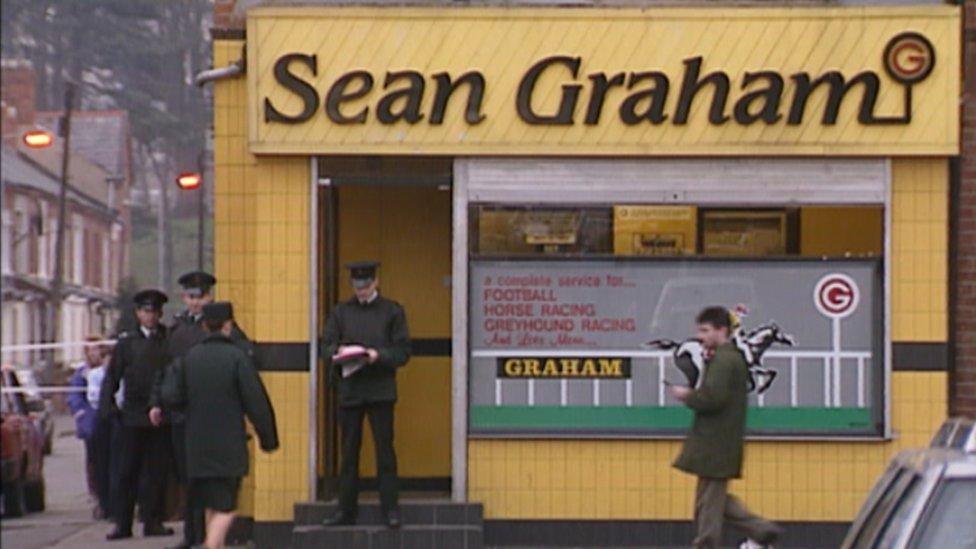
Five Catholics were shot dead in the Ormeau Road attack
One of the cases focuses on an investigation into a series of loyalist paramilitary murders in south Belfast between 1990 and 1998.
Earlier this year, Mrs Anderson found evidence of "collusive behaviour" by police in attacks which included the February 1992 shooting at the Sean Graham betting shop on Belfast's Ormeau Road where UDA gunmen killed five Catholics dead and wounded seven others.
Legal action is also being taken over a report into the police handling of loyalist killings in the north west from 1989 to 1993.
A third challenge relates to findings in the case of four men wrongly accused of murdering a British soldier in Londonderry.
In June, the ombudsman found that RUC officers had unfairly obtained confessions from the men, known as the Derry Four, for the killing of Lt Stephen Kirby in the city in 1979.
The four men later fled Northern Ireland. They were acquitted in 1998.
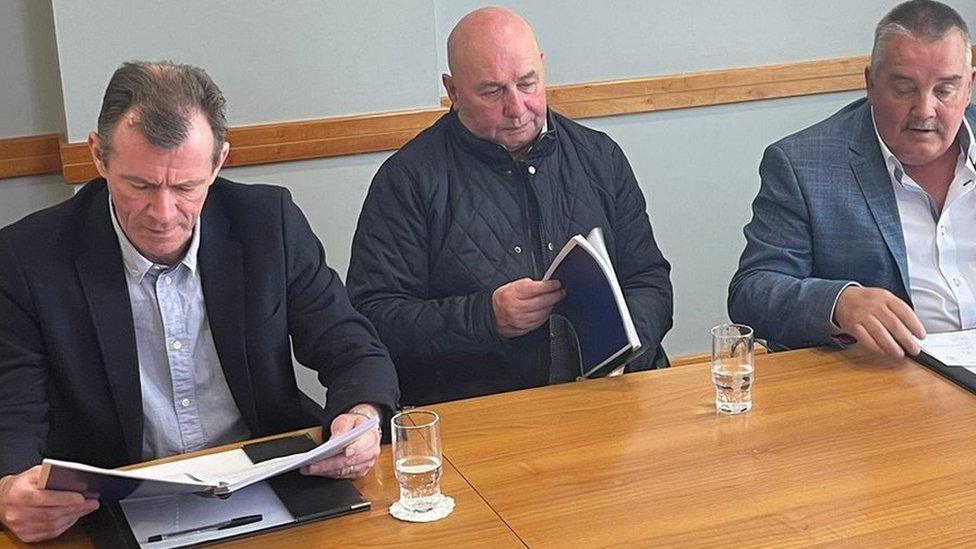
Three of the so-called Derry Four - Gerry McGowan, Michael Toner, Gerard Kelly - pictured reading the Police Ombudsman report
The retired officers claim Mrs Anderson is legally forbidden from making findings which, without proper due process, effectively branded the RUC guilty of colluding in terrorist murders.
In court, counsel for the RUC association claimed that the ombudsman misunderstood her permitted role.
But Mrs Anderson's barrister suggested that the retired officers were "collusion deniers".
Ruling on the initial stage of the case on Tuesday, Mr Justice Scoffield acknowledged that the precise nature of the ombudsman's role in legacy investigations and the extent of her powers "remains a running sore" between her office and former police officers.
He said each of the cases raised some ground or grounds that should be considered in substance by the court.
A full hearing will be listed at a later date.
- Published4 July 2022

- Published15 June 2022
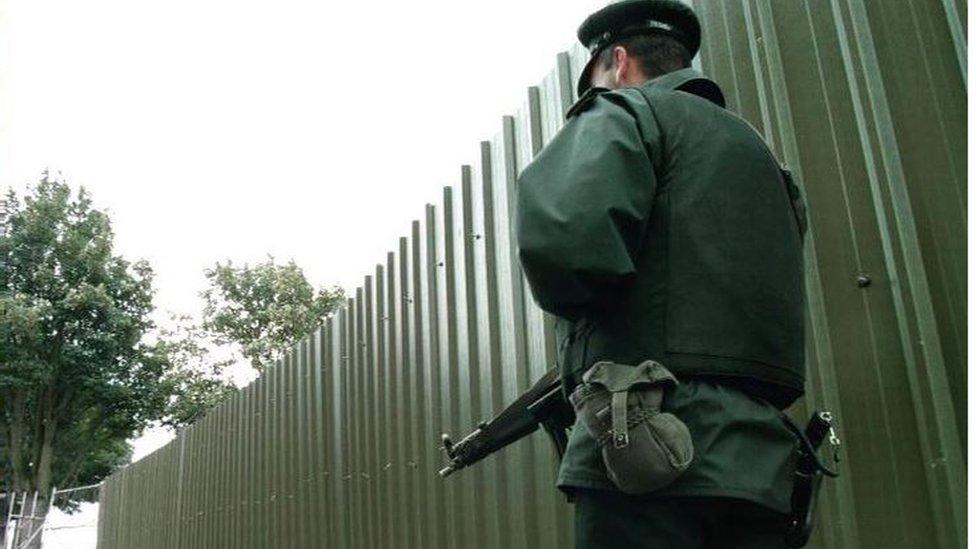
- Published10 June 2022
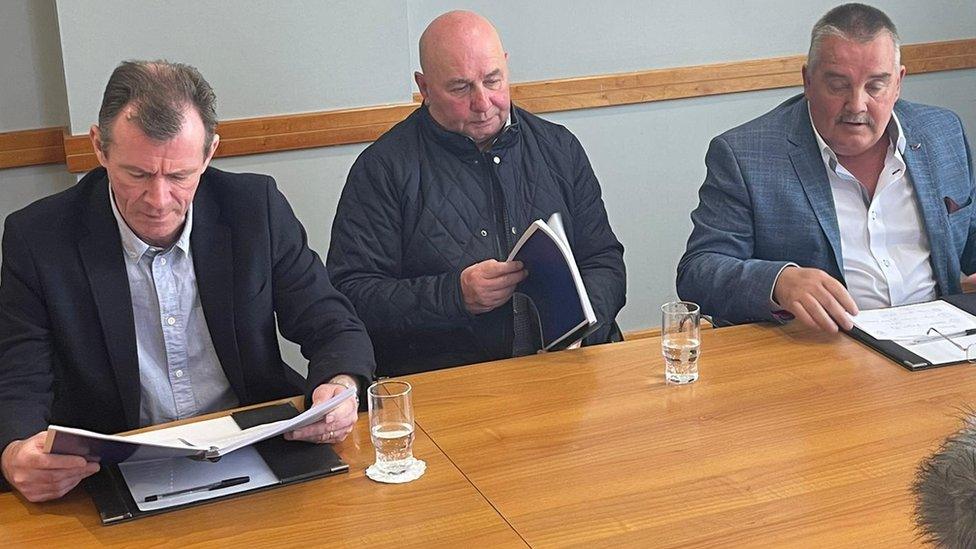
- Published13 February 2022

- Published26 April 2023
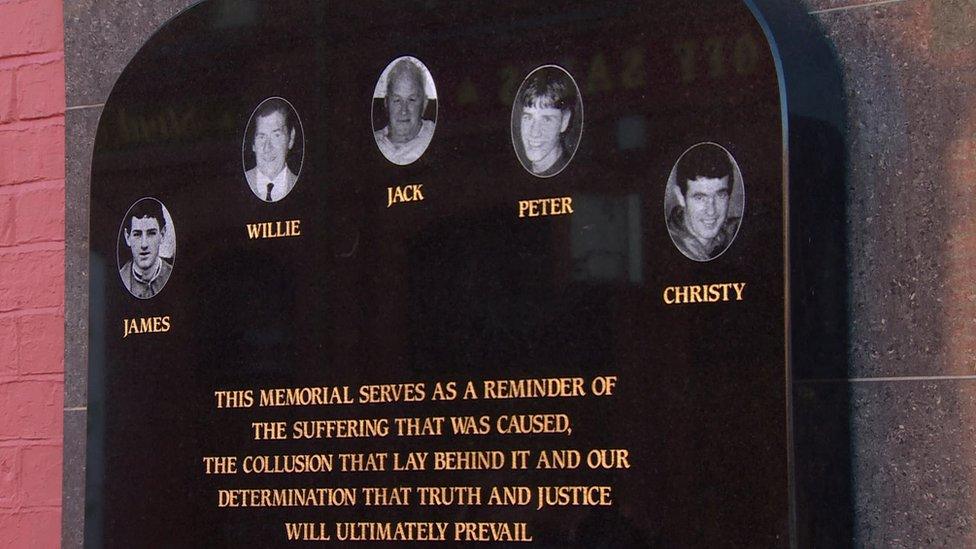
- Published8 February 2022
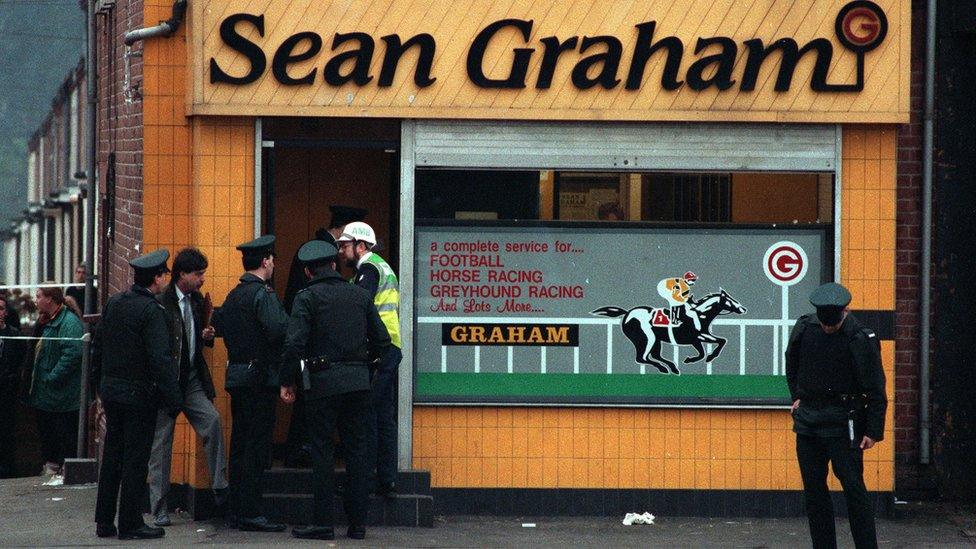
- Published14 January 2022
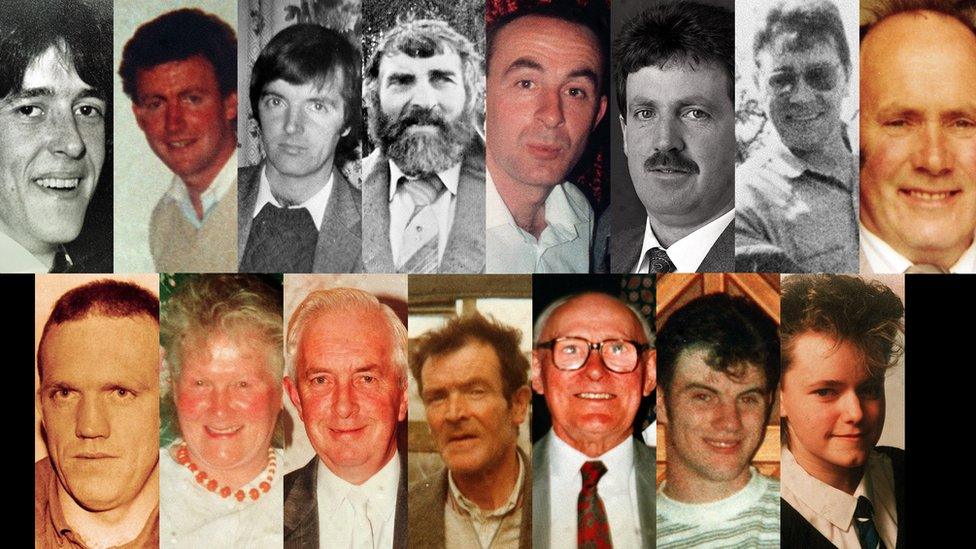
- Published8 February 2022
